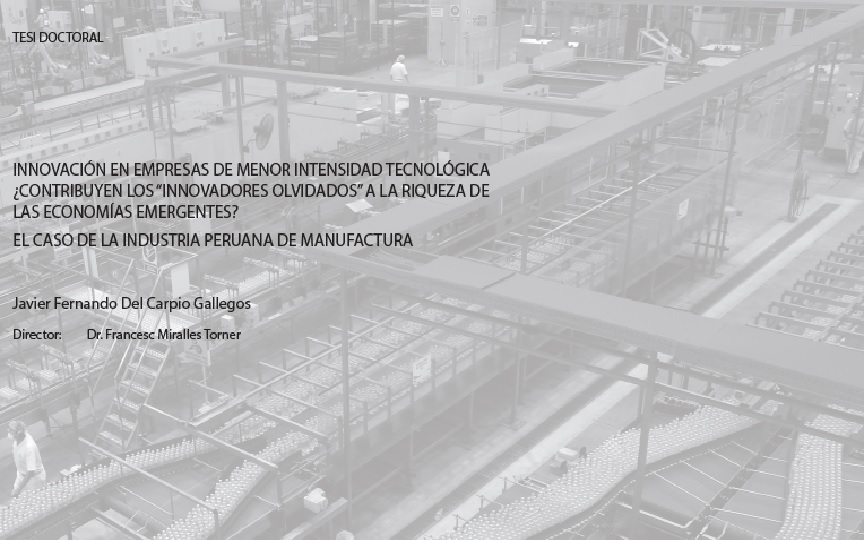MR. JAVIER FERNANDO DEL CARPIO GALLEGO’S THESIS LECTURE


Companies develop innovations with the expectation of generating competitive advantages, improve their financial performance, increase their exports and, in this way, be sustainable over time. The challenge of knowing what are the good practices that allow obtaining positive results in this endeavor is still to be completed. The present study focuses on answering the following question: what factors contribute to the realization of technological innovations in manufacturing companies of lower technological intensity that belong to an emerging economy?
The interest in this type of company is due to its contribution to the gross domestic product, the generation of jobs, the contribution in the payment of taxes and the generation of foreign currency. Secondary data obtained from the National Survey of Innovation of the manufacturing industry in Peru in the years 2012 and 2015 have been used. Several hypotheses that, derived from the existing literature, can explain the behavior of some factors in the innovation capability are analyzed in less technological intensity companies in emerging countries. The methodology of partial structural equations was applied using the Smart PLS Software Version 3.
It was verified empirically that the absorptive capacity; the acquisition of machinery, hardware, and software; and the realization of non-technological innovations can favor the development of technological innovations carried out by companies of less technological intensity.
This study contributes to the literature related to the technological innovation capability of companies with less technological intensity in emerging countries such as Latin America, which are characterized by their low levels of investment in research and development, and which face a context of little political stability. and lack of financial resources to implement research and development activities. The results obtained allow managers to recommend that they develop their absorptive capacity and innovation capacity, which will allow them to implement non-technological innovations that will result in the development of technological innovations. And to those responsible for the policy makers of science, technology and innovation to emphasize the above factors, and in this way contribute to the growth and welfare of their economies.